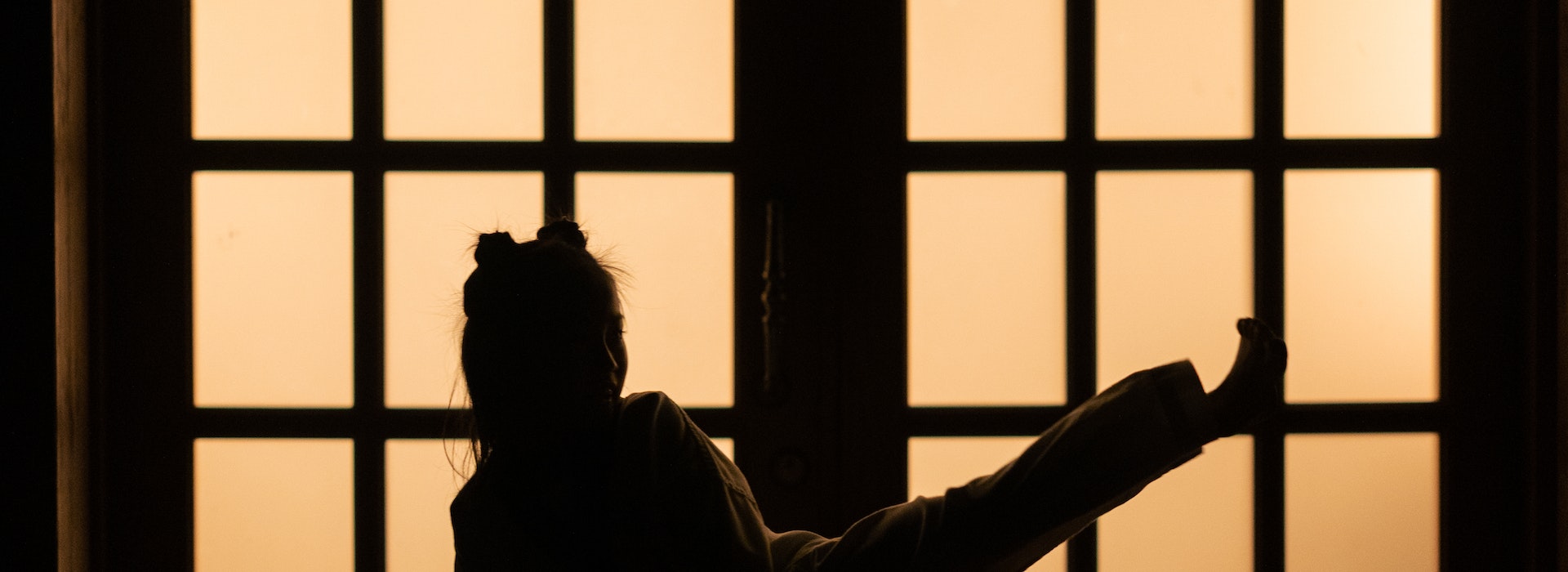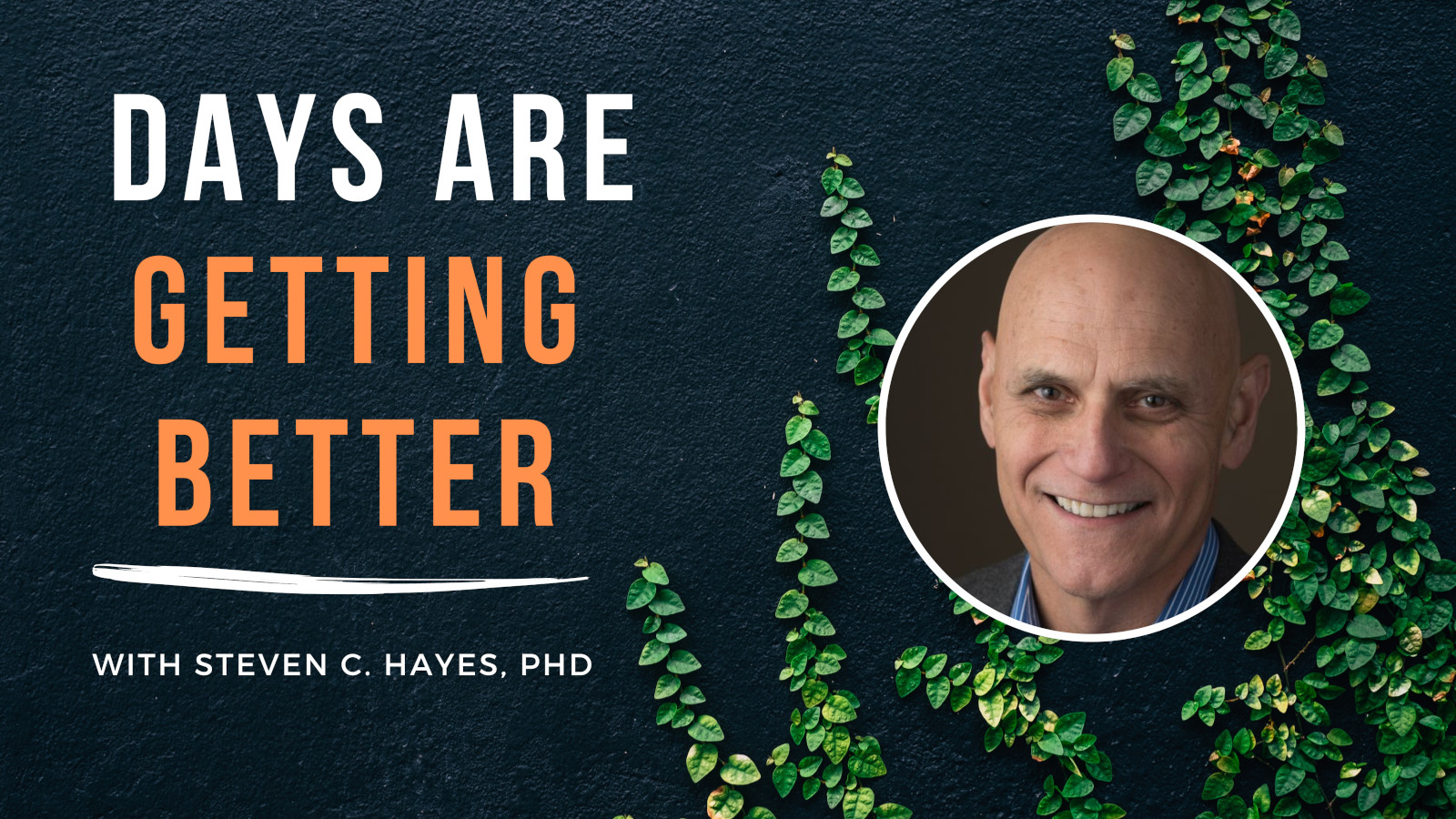Question #1 What is the central theme of the book?
The central theme of A Liberated Mind is that we have to create modern minds for the modern world, and that we’ve been feeding processes that are actually doing the opposite. We see the costs in our mental and physical health. We see the costs in our children’s suffering. And we see the costs in our cultural devolution worldwide. The book is about the processes that lead lives in a negative or positive direction.
Question #2 What does the subtitle of the book “how to pivot toward what matters” mean?
There’s an energy inside the unhealthy things that we are doing that is actually our ally. If we can recognize the healthy yearnings that sits behind our unhealthy actions, we can redirect that energy in a positive direction, much as the pivot in a door hinge redirects the energy as you push in one direction to swing the door in another. We’re not doing ineffective things for the wrong reasons. The reasons are good. It is the WAY that we’re doing it — by overusing problem solving, or overusing avoidance and suppression, self-soothing and so forth — that it greatly impoverishes our ability to focus on what brings meaning and purpose into our lives.
You can get what you really want, but not the way your mind says to get it. I can give you an example: We yearn to feel, but our mind says “but I only want to feel the good stuff”. Unfortunately, it doesn’t work this way. If you’re not open to feeling sorrow, and sad, or angry when things are aversive, then you’re not going to be able to feeling joy, or love, or connection fully. Feeling what is there to be felt comes as a single package. The evaluative mind does not get that, and never will. But our hearts get it, if we can get the evaluative mind out of the way enough to experience it.
Question #3 The book has been 11 years in the making. What was the process like?
I first wrote the proposal for it 11 years ago. I had a vision for it right after Get Out Of Your Mind And Into Your Life became popular. However, the publishers weren’t so sure at first. I wasn’t either. So much was speculative. We did not have the data. So I set it aside after a year or so. But the data kept coming. I really went back hard at it about five years ago, pulling the pieces together to make the book happen. It’s absorbed my life, especially over the last three or four years.
When I first wrote Get Out Of Your Mind And Into Your Life in 2005, there were only a few handfuls of studies. There are now several thousand. In 2005, there were only five randomized trials. There’s now several hundred. We now know a lot more. We know that psychological flexibility processes can transform people’s lives — it is no longer a guess. We’ve got studies with thousands of people followed for five to 10 years. I felt a certain responsibility to the community, and to the world really, to bring people in contact with what we’ve learned.
The other part is, I just could see what was happening in the modern world. I think there was a sense worldwide that we’re losing our way. Our young people are having more problems, not less. Suicide rates are going up among young people especially. People were way overusing psychoactive medic medications. We have the opiate crisis in the U S which is an indication of how poorly we’ve handled the issue of chronic pain. We see our politics become harsh and a rise in racism. It’s in area after area, after area, after area. We all know something’s wrong. And psychological inflexibility is underneath much of this. The data are pretty clear. And so it was time.
Finally, there’s a rumor going around that you don’t live forever. I’m 71. And, you know, I’ve tried not to make myself the focus of this work, but I’ve hit a point where it’s time for me to step forward and tell my personal story and to link it to the science story. If I’m ever going to do it, well, time’s up. So I lifted this weight. It was not an easy lift. The scope of the research is crazy — and the personal pain was more than a little. I cried many times as I walked back through every dark place that was part of the work. It was hard.
Question #4 What did the research phase look like? How much time did you spend researching for the book?
The academic research was a continuous process throughout. However, reaching out and hearing the personal stories was about a two year process. I had people working with me for a period of time, like the late John Cloud, and Spencer Smith with whom I’ve written Get Out Of Your Mind And Into Your Life. I also hired several graduate students who have helped me with the research work. There’s entire cardboard boxes filled with notes and tapes, and far, far more on the cutting room floor than the 400 and some pages that are A Liberated Mind. The cutting process was pretty brutal. Some major ACT researchers are now not in the book because I had no room. Cool studies had to be put aside in the interests of readability. In order to produce something like this, it takes a village practically and a lot of effort over a lot of years to really make it happen.
Question #5 What did your writing process look like?
I tend to be a binge writer. I’m hard on myself, and when I get going on a chapter or a segment, I just want to go and not stop. Most of my books have been written with organized binges that are seven to 10 days long, however many chunks like that that I need where I will literally go somewhere – often with co-authors or others – and get everything turned off. Nobody can call me. You just disappear from the electronic universe, and you grind, and meet, and grind, and meet, and share, and criticize, and grind, and meet with your coauthors.
My process for this one was shorter binges of up to two days. That was about all I could do while still being a husband and father. It is hard to ask permission to disappear for a couple of days, know that falls on your wife and son (who went from 10 to 14 as it was put together). They are very much responsible for it getting done. If the book helps others, Jacque and Stevie are why. In the abstract I wanted to write 45 minutes here and two hours there, but I ended up writing more like eight hours here or 15 hours there, and then sending it off to my development editor who would come back with it thoroughly chewed up.
Question #6 What was the most challenging part for you in writing this book?
The single most challenging part was the personal part; it was the personal stories. For one thing, they’re very painful. For another, I hadn’t talked about them a lot. And the third thing is that I was relying on memories that were very old, and I could not trust those and just write the book without corroboration. For example, people can go and look at my first TEDx talk where I walked through the bottom of my own struggle with panic disorder, where I am in the middle of the night thinking that I’m having a heart attack. And then I realized I’m just having a panic attack, just a different form. And I was really feeling as though I had no way forward.
Well, what is not in the TEDx talk is that this was a memory that had not been talked about very much. I remembered it almost more like a dream But I was determined not to talk about that story in a book like this unless I knew it was true. I was not going tp allow myself to inadvertently talk about a bad dream. But this was almost 40 years ago. Was my memory close to what happened? I had to know, but how could I know?
I’m having a hard time talking about this without crying. I had a very, very clear memory of the place. I could see the window, the furniture, the rug, the phone, the hallway. But I had no idea where that place was. I thought it had to be in Greensboro, North Carolina because that’s where I was teaching when I was struggling. But this memory does not fit with any place I remembered.
So I’m contacting old girlfriends; talking to my ex-wife; talking to my eldest daughter. Nothing. I’m coming up a dry hole after dry hole. I knew approximately what year it was. I had a written record of my first ACT workshop so I knew it could not be too much before then. I finally talk to an ex girlfriend who I was dating in that period and when I describe it she says matter of factly, “you’re talking about my apartment.” And I say “was there a bed here? A dresser here?” I actually drew a map and sent her a pdf. Did it have rooms like this? A hallway like that? And she just says, “yeah, that was my apartment”. I had finally found it!
I called the late John Cloud who was working with me on the book and I say “I found it! I found it! It’s real!” I cried for like hours. Hours. Even now, it makes me weep. It’s very hard to explain why I was crying. It would be like if you had a memory of an abuse history, and then you found a film of it or a note from a perpetrator that is exactly the way you remembered it. Exactly. I was just overwhelmed by it.
This was not a bad dream or Steve being neurotic. This and all of these very painful things inside panic disorder actually happened to me.
Some of what happens inside severe panic disorder is so odd, so “crazy,” that it is almost impossible to explain it to others. And 40 years later I have a hard time even explaining it to myself, if you get what I mean. So the hardest thing about the book was asking all of those questions, almost the way a skeptical reporter might, and having to walk back into hell voluntarily to confirm the details.
Question #7 Where in your personal life do you struggle the most with following your own advice?
I have a hard time not defending myself from the direct experience of being loved. It’s not loving that is hard for me. It’s being open to the direct experience of being loved. I put far more barriers in the way than is healthy. I have compassion for the childhood issues that makes that hard and I keep working on it and working at it, and man I’m so much better at it now than I used to be. I’m very, very lucky to have a really loving a wife who doesn’t let me get away with anything and yet hasn’t thrown me over the side. And I’m thankful everyday for her. But that’s the hardest …
Question #8 Who do you think this book is for and why?
The reader I had most in mind was a thoughtful adult who wants to understand more about themselves and the people that they love, and wants to bring something positive into their lives and the lives of those that they care about.
I would hope that some of those people are in a position to think about what goes on in our schools or churches or communities or families or whatever. Can we put things into our health-care system or our mental health system or into our work environments that soften us and lighten our burdens? Can we do a better job with prejudice and stigma? Can we empower high achievers in sports or whatever it is. I mean, there’s so many places where we can put flexibility processes.
So the people I’m trying to serve, I hope some of them have the capacity to help.
Question #9 What do you hope readers will take away from this book?
Well, the bottom line takeaway is to open up to your history, come into the present, focus on what you care about, and get your feet moving. What’s in the book will give you a start, and there’s plenty of support material in there to help you become more fully the person you want to be, and bring what you care about into the world around you.
Question #10 Anything else that you would like to share about this book?
One thing I want to emphasize is that it’s a journey of the entire culture and the scientific community. I want people to see the larger communitarian story of scientists, practitioners, and recipients of care trying to work together to do something that is more worthy of the challenge of the human condition.
We’re not declaring victory. At best, it’s just a step forward. The science that we’re doing now benefited from the science that was done a hundred years ago, even though it’s all different. And so it’s cool that western science is finally on to something as basic as “Who are we as human beings?”, and “How can we be empowered to be fully ourselves in the world and make a difference in the lives of those who love?”. This is a larger cultural process. I’m just a part of it, hosting and helping. The scientists and practitioners who built out this work are part of it. But the reader is doing it too, if they are willing to bring their hearts, heads, and hands to this work.
__________________
You can order a copy of A Liberated Mind by going to Stevenchayes.com/a-liberated-mind







